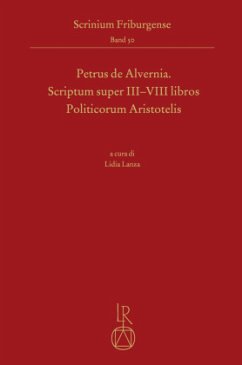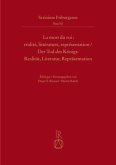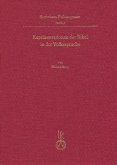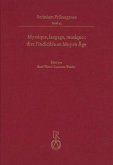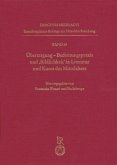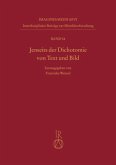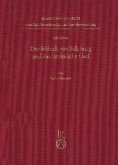This volume contains the first critical edition of the Scriptum super III-VIII libros Politicorum by Peter of Auvergne as well as a pragmatical edition of Books III-VIII of the medieval Latin translation of Aristotle's Politics. Intended as the continuation of Aquinas' unfinished commentary on the first three books of the Politics, the Scriptum became-together with Aquinas' commentary-the commentary on the Politics. From its appearance in the late thirteenth century to the end of the sixteenth century, the Scriptum represented the most authoritative and influential interpretation of Books III-VIII of the Politics.
The introduction to the volume provides both an overview of Peter's political thought and a case study of the production and dissemination of a university text. An examination of the manuscripts traces the preparation of the text from its first transcription and revision by a scribe close to the author-if not the author himself-to the preparation of the finished exemplar and its diffusion through the system of peciae. The introduction also explains how the text was adapted to fit the standards of humanistic Latin when it was first printed in the fifteenth century: its language was adjusted to humanistic standards, many formulations were reshaped, and passages were suppressed. These changes were subsequently preserved in all later editions of the text. Freed from this humanistic patina with which it has been transmitted since the early age of printing age, the Scriptum is now restored to its original version.
Hinweis: Dieser Artikel kann nur an eine deutsche Lieferadresse ausgeliefert werden.
The introduction to the volume provides both an overview of Peter's political thought and a case study of the production and dissemination of a university text. An examination of the manuscripts traces the preparation of the text from its first transcription and revision by a scribe close to the author-if not the author himself-to the preparation of the finished exemplar and its diffusion through the system of peciae. The introduction also explains how the text was adapted to fit the standards of humanistic Latin when it was first printed in the fifteenth century: its language was adjusted to humanistic standards, many formulations were reshaped, and passages were suppressed. These changes were subsequently preserved in all later editions of the text. Freed from this humanistic patina with which it has been transmitted since the early age of printing age, the Scriptum is now restored to its original version.
Hinweis: Dieser Artikel kann nur an eine deutsche Lieferadresse ausgeliefert werden.

